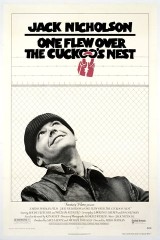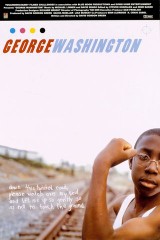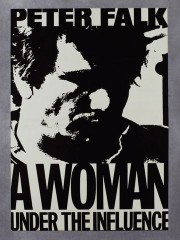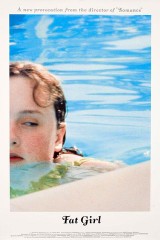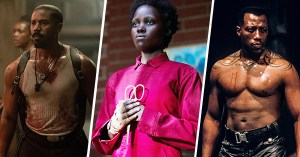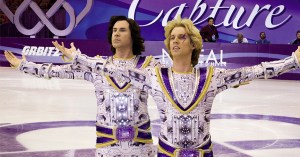Bo Burnham’s Five Favorite Films
The YouTube comedy star-turned-director of Eighth Grade talks about his acclaimed debut and how he "stumbled into" stand-up and film.

(Photo by Dave Kotinsky/Getty Images)
Bo Burnham is a true success story of the modern digital media age. He was only 16 years old when a couple videos of him singing in his bedroom quickly went viral and shot him to internet stardom back in late 2006. He continued to gain a fanbase as he released more original songs over the next couple of years and eventually found further success as a stand-up comedian, incorporating his music into his act. Since then, Burnham has released four comedy albums, appeared in a number of feature films, produced several stand-up specials, and even helped develop a sitcom for MTV.
This week, however, marks a new milestone for Burnham, as he makes his feature film debut as writer and director with Eighth Grade, a coming-of-age comedy-drama about a socially awkward 13-year-old girl (Elsie Fisher) trying to survive her last week in middle school. The film premiered earlier this year at Sundance to rave reviews, and it’s currently Certified Fresh at 98%. Burnham spoke to Rotten Tomatoes about his Five Favorite Films, then talked about how he rose to fame, why he wanted to make Eighth Grade, and what he’s looking to do next.
Ryan Fujitani for Rotten Tomatoes: I have to confess, I was not expecting such an eclectic list from you.
Bo Burnham: Was that a f—ed up list? Is it like a pretentious thing? I can always change…
RT: No, not at all. I’m just a bit surprised, but it’s a fantastic list. Has film always been a big thing for you?
Burnham: Not really, no. It wasn’t until I was 18, 19 that I even started really watching movies in any kind of serious way. I loved acting. I loved theater. That was my first love, and then I was going to go off to school for experimental theater, you know, and do that. It’s not like I was interested in lacrosse or whatever, and then all of a sudden I picked up film. I feel like even though I wasn’t watching film, I was learning things that would eventually lead me to film. I feel like, if I have any strength as director, it’s from all the time I spent in theater working with actors and collaborating with actors. Yeah, it was sort of late in life for me.
Some of my favorite filmmakers are people that tend to… maybe haven’t been filmmakers, and then jump into it or something. Like, I love Steve McQueen. I mean, he was making film but not narratives. I wasn’t a kid growing up with movie posters on his wall, necessarily. I sort of stumbled into it and realized, “Oh, weirdly, I’ve been circling this this whole time. I actually think all of my interests are contained within this thing.” I definitely have catch-up to do, I feel. You know, people are like, “You haven’t seen Lawrence of Arabia?” and I’m like, “Oh s–t.”
RT: It’s also a little surprising that Eighth Grade came from you, because while your comedy style is clever, it’s also brash, cheeky, and sometimes controversial. What made you decide to tackle more grounded material like this?
Burnham: I kind of fell into a world of doing stand-up and the tools available to you as a standup, or for me in terms of what my shows were, was sort of irony and cynicism and being clever and overwriting things and making things very precise. I was sort of hungry to drop that stuff and collaborate with somebody and not use those tools, and try to capture something more human and spontaneous, and get back to what I loved about theater, which was something less knowable and not really speaking from authority, but instead jumping in something and flailing around, and trying to describe it from the inside, you know? I was sort of tired of going around talking about what I had figured out. I was more interested in exploring things I was struggling with.
RT: Part of Elsie Fisher’s character Kayla’s story in the film involves trying to become a YouTube personality in her own right, and of course, you know something about that yourself. Looking back now, is this anything at all like the path you imagined yourself taking to get where you are?
Burnham: No, I mean, in 2006, when I was 16, yeah, sure, I probably wanted to be famous, too. I mean, who doesn’t want attention all the time to some degree? I hoped to be making things. That was the hope, just to be able to make things. I didn’t know that I’d stumble in on this. You know, I thought I wanted to be an actor. I thought I wanted to be a theater actor, and then I avoided that, and I did stand-up, and then I tried to drag everything I loved about theater into stand-up, and then I hit a brick wall with that and realized all the things that I like could be contained here.
Even though I didn’t really expect to be making a film in this way, the actual things I’m doing, which is working with actors and writing and staging things, that is what I wanted to do when I was 14, 15. I ended up staging stuff and doing that for my stand-up, but just craving working with other people, rather than try to return to a black box and put up a play. Also, during this I was just concurrently falling in love with screenwriting and, in filming my own specials and directing some other people’s specials, really falling in love with the medium and what it can do and also, watching movies. It feels like a solid 10 years of interest in this.
RT: As a 27-year-old man, how did you get into the mindset of a 13-year-old girl? Part of this film’s appeal is that it feels so genuine, and I’m wondering how you accomplished that.
Burnham: If you want to research these kids, they’re posting everything about themselves online, so it’s pretty easy. The other thing is to just believe that you can, to believe that her thoughts are just as interesting and deep and fraught as yours, and that it isn’t just, “How am I possibly going to understand what she’s thinking?” It’s like, “No, she’s a human, too, that’s struggling with her own things and is self-aware and is worried and has all of your fears.” Her circumstance is different but she’s still a person with a beating heart. Also, knowing that I’m going to actually be able to have an actual 13-year-old girl there, performing. I’m not writing a novel, so it really was letting her lead and letting her embody the part.
RT: Did Elsie get some input on that?
Burnham: Not specifically in terms of script or words, but she’s offering every moment by just being. It’s really just trying to get her to be comfortable enough to express herself. I didn’t do it. She did. She did it all. I just kind of laid a structure for her to perform in. She’s the one that is delivering the actual meaning of the movie, even if she’s not writing it. The words are dead until she says them.
RT: Were there any specific coming-of-age movies you took inspiration from for Eighth Grade?
Burnham: Welcome to the Dollhouse, I like. I find it a little mean, but tonally it captures how weird kids are, which I like. There’s this great movie called Old Enough by Marisa Silver that’s really lovely. Yeah, George Washington, Fish Tank. Billy Madison. I think Billy Madison gets school very right. First grade has never been more accurately portrayed since Billy Madison.
RT: Now that you’ve finished your first narrative feature, and you’ve mentioned that you’ve fallen in love with screenwriting, can we expect more? Is there something different you’re looking to try next?
Burnham: No, no. I’m not trying to try stuff just to try it. I hope to write. Well, I have been writing stuff, but I hope to make things. I’m not trying to be like, “Then I’m going to bake cakes,” or whatever. I have a whole lifetime of getting better at this, I’m saying. If I’m lucky enough to do it, I know there’s so much work ahead. Hopefully I can find something that makes sense and find people to pay for it. That’s the unfortunate thing about being a director: Your passion requires millions of other people’s dollars.
Eighth Grade opens in limited release this Friday, July 13.



